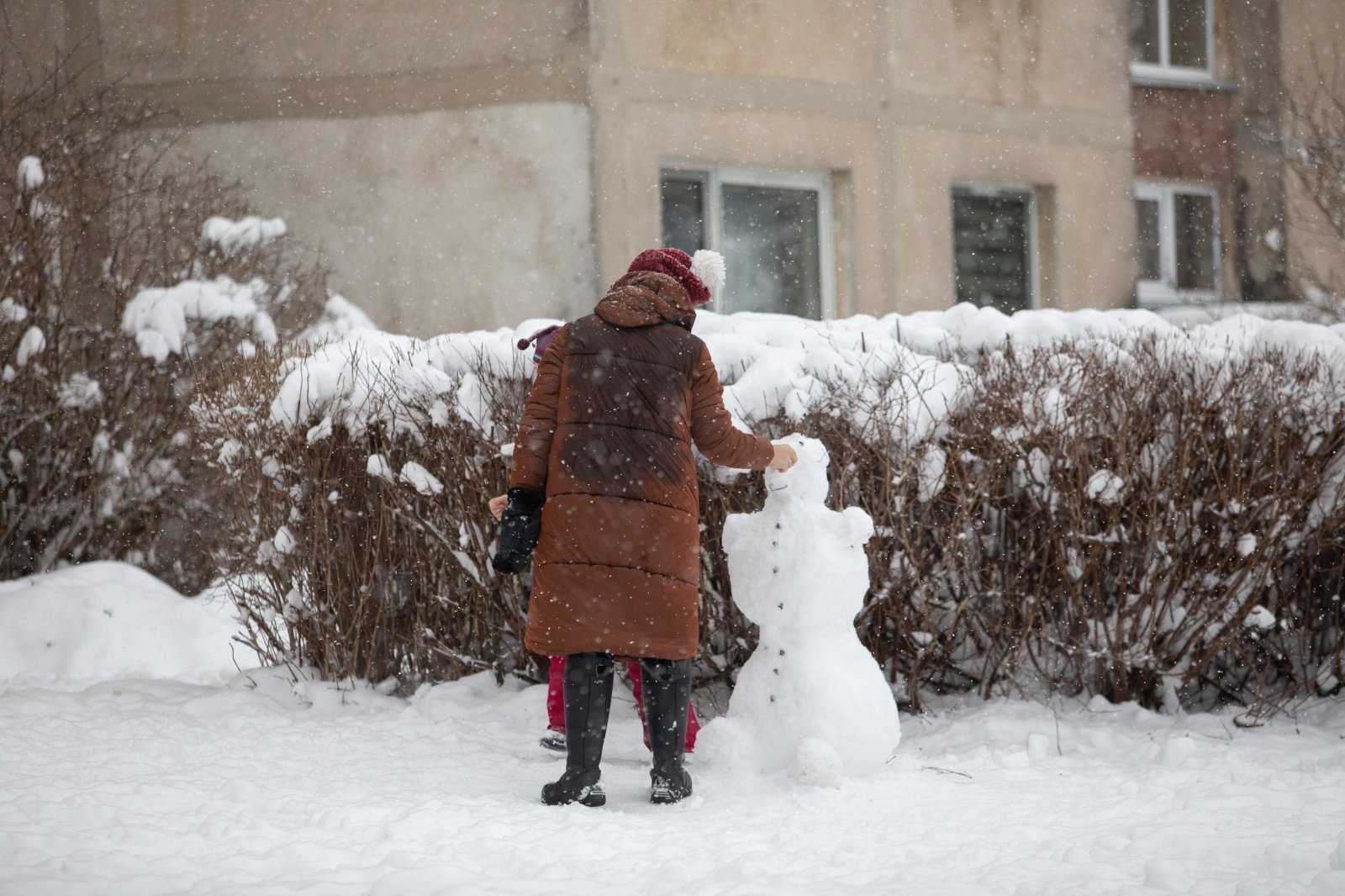
[ad_1]
“We are currently asking the Ministry of Social Security and Labor for an opinion on whether COVID-19 should be included in the list of occupational diseases. We will evaluate this situation,” Deputy Minister of Health Živilė Simonaitytė said on Friday at the session of the Health Affairs Committee of the Seimas.
According to her, so far there is no such practice in other countries of the European Union.
“It just came to our attention then. We will make decisions about the overall situation,” the deputy minister said.
On Friday night, the Ministry of Labor and Social Welfare (SADM) could not answer whether it had received such a request from the Ministry of Health, but stressed that it would be considered.
“The ministry examines all applications received from other institutions and, after analyzing them, presents its assessment,” said Tomas Kavaliauskas, Public Relations advisor to the Ministry of Social Security and Labor.
Occupational disease: an acute or chronic disorder of the health of an employee caused by one or more harmful and dangerous factors of the work environment, duly recognized as an occupational disease.
When an occupational disease is diagnosed, a person is entitled to a social security benefit that reaches the full previous salary in the hands, but the infection in the workplace has not yet been proven and the Labor Inspectorate is involved in this process .
Currently, only doctors, teachers, and officials can receive COVID-19 occupational sickness benefit in full for their previous earnings. However, the infection must not be from a colleague and this procedure is only valid during quarantine and emergency.
This is foreseen in the Law of Social Security of Illness and Maternity.
With the inclusion of COVID-19 in the list of occupational diseases, social benefits could be provided to workers in all occupations who are infected in the workplace. It could also be paid not only during quarantine or emergency.
Both the Lithuanian Medical Movement and the Young Doctors Association support this initiative.
“I don’t think anyone has any doubt that they need to be involved,” said Auristida Gerliakienė, leader of the Lithuanian Medical Movement.
“This would be a logical solution,” said Kristina Norvainytė, president of the Young Doctors Association (JGA).
Inga Ruginienė, president of the Lithuanian Trade Union Confederation, said that BNS also supported such an initiative, but emphasized that the issue required further discussions, as it would be difficult for other professions, unlike doctors, to prove that they are infected on the spot. of work.
“The point is the burden of proof. It will be necessary to show exactly that a person has been infected at work and only then will it be recognized as an occupational disease. Because if it is not possible to prove it, no one will admit it.” For example, an employee a store will probably have a hard time testing it, whereas a person who works directly with patients, their risk is obvious, “he said.
As Jurgita Sejonienė, a member of the Health Affairs Committee, told BNS, if COVID-19 is included in the list of occupational diseases, the evidence mechanism will have to be reviewed.
“Apparently additional reserves will be needed,” said the Seimas member.
He also criticizes the current order
Meanwhile, Liutauras Labanauskas, president of the Lithuanian Medical Association (LGS), told BNS that the current procedure envisaged in the Law on Social Insurance for Sickness and Maternity is too complicated and burdensome for bureaucrats.
According to him, although the law provides for the possibility of paying a higher sickness benefit to infected doctors during work, the territorial branches of Sodra require the presentation of documents that prove the causal link between the performance of professional activities and the disease. This is especially true for doctors who work in coronavirus wards.
The union is currently preparing a document that it intends to submit to the government next week calling for the simplification of the current procedure.
“It is clear that the requirement to collect documents for healthcare professionals affected by COVID-19 in the COVID units of health centers is redundant and increases the administrative burden and burdens for healthcare professionals working with a increased nervous, emotional and mental stress “. received by the SNB.
According to L. Labanauskas, SAM, SADM or the Government should prepare a circular explaining that it is enough for doctors who have contracted COVID-19 to provide health care services in the coronavirus rooms of medical institutions just by delivering a document that confirms the fact of his work there.
“Whether it is a ministerial decision or a government decision, we do not care, it is important for us that it happens next week,” he said.
According to the National Center for Public Health, there are currently around 4.2 thousand people with coronavirus, and more than 12 thousand have been infected since the start of the pandemic. doctor.
[ad_2]